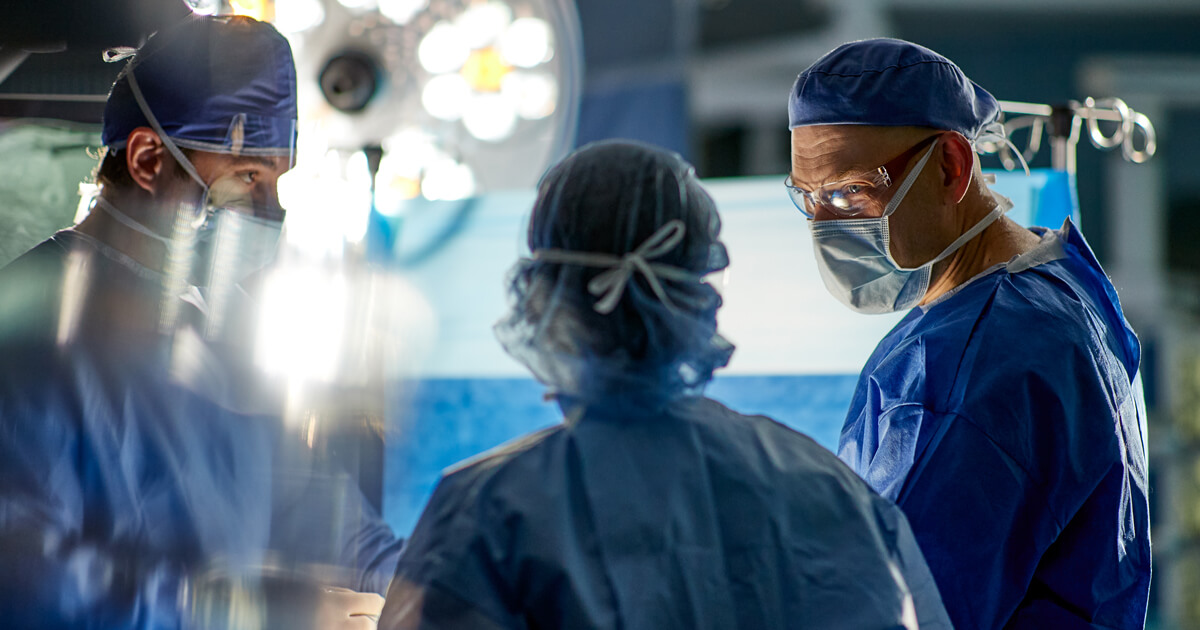Preparing for your Heart Transplant at Allegheny General Hospital

A heart transplant is a life-saving surgery for people with severe heart failure — a final option when all other treatment methods have failed. Like many patients that find themselves in need of a heart transplant, you may have already spent years managing your condition with medicine, procedures, and other therapies.
Even after trying everything, the hardest part is often the wait. Patients may spend months or even years on the transplant list, hoping for a donor heart. When that moment finally comes, it’s a second chance at life.
At AHN’s Cardiovascular Institute at Allegheny General Hospital (AGH), we know how important this journey is. Our team is here to guide you through every step, from surgery prep to recovery, so that you can move forward with confidence.
Understanding heart conditions
There are certain heart conditions that can weaken the heart and lead to the need for treatment or surgical intervention, including:
- Cardiomyopathy – The walls of the heart chamber become stretched, thickened, or stiff. This affects the heart’s ability to pump blood.
- Valve disease – The valves of the heart do not work properly, preventing regular blood flow.
- Coronary artery disease – The arteries that supply blood to the heart become narrowed or blocked.
- End-stage heart failure – The heart can no longer pump blood well enough to meet the body’s needs.
If treatment methods like blood pressure or cholesterol medications, major lifestyle adjustments, and surgeries like valve replacement have been unsuccessful — and all other options have been explored — your AHN cardiologist may talk with you about a heart transplant to address these serious conditions.
What to expect
The goal at AHN Cardiovascular Institute is to move forward with transplant at the right time — not too early and not too late — in your treatment journey.
Your providers at AGH will have discussions with you about finding a donor for your transplant, and how long you may be waiting for a donor based on your condition, blood type, age, and other factors.
Once you’re matched with a donor, your team will help you prepare for the procedure. A heart transplant is a major open-heart surgery, so it’s important that you understand what will happen. During the procedure:
- Your surgical team will remove your native heart (the heart you were born with) through an incision in your chest.
- They will place the new donor heart and connect it to the major blood vessels in your chest.
- Once in place, it will immediately start working, pumping blood through your body.
Transplant recovery
At AHN, your emotional well-being is just as important as your physical health. AGH will pair you with a transplant nurse coordinator who will support you throughout your care journey.
After your transplant, you’ll stay in the hospital for 10-14 days while your team continues to monitor your recovery and make sure your new heart is working well.
In addition to regular check-ups with your primary care physician, your AGH doctors may recommend you work with a physical therapist and cardiac rehab team to help you safely return to daily activities. During the first six weeks of recovery, you should avoid lifting anything heavy or pushing or pulling heavy weights with your upper body.
Medication management
Since your new heart is foreign tissue, your body’s immune system may try to reject the heart. Your doctor will prescribe immunosuppressant medications to reduce the chance of rejection.
The risk of transplant rejection is highest right after surgery, so your providers will monitor you closely within the first six months with regular heart biopsies and echocardiograms (echoes).
Heart-healthy habits
Building heart-healthy habits is something your AHN team will work with you on from very early on in your treatment and care. It’s important that you maintain these habits after your transplant:
- Taking medications as prescribed
- Eating a heart-healthy diet with meals that are low in sodium and sugar
- Staying active with regular exercise
- Avoiding smoking and alcohol
- Managing a healthy weight and keeping blood pressure in a healthy range
Why choose AHN?
We understand that the idea of undergoing a major heart surgery is daunting, which is why it’s important to feel confident about the provider you choose.
The heart transplant team at AHN Cardiovascular Institute not only provides the compassion and expertise you want for this type of major operation, but we’re also proud to have strong survival rates. Based on The Scientific Registry of Transplant Recipients (SRTR) data, our three-year patient heart transplant survival rates are the best in western Pennsylvania.*
Source: Scientific Registry of Transplant Recipients, srtr.org.
About Candice Lee, MD
Dr. Lee is a cardiac surgeon with extensive expertise in treating patients with heart failure and coronary artery and valvular disease. She performs highly specialized treatments, including heart transplantation and mechanical circulatory support.
Allegheny General Hospital (AGH) has provided exceptional health care services to residents of Pittsburgh's North Side and surrounding communities since 1886. Our physicians are renowned in their fields. Together with nurses, technicians, clinicians, and support staff, our team delivers advanced care in nearly every medical and surgical specialty.

